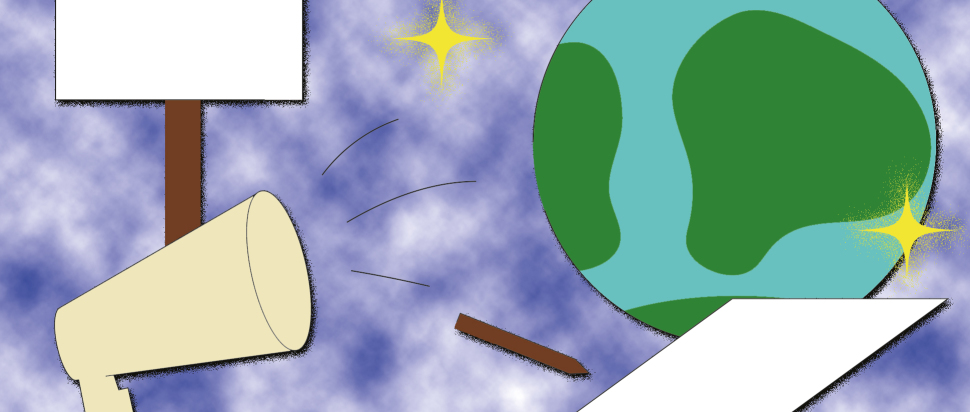STOP @ Tramway, Glasgow
Penny Chivas's developing work uses movement, music, interviews and empathy to represent radical climate activists’ physical and existential struggle
I’ve devoted my life to climate activism since 2018, and since doing so I’ve become slowly disillusioned with art in general: what was once my guiding light has felt increasingly divorced from harsh reality. Penny Chivas’s work-in-progress, STOP, is a deeply welcome reminder of how even relatively figurative artforms can be a balm to discontent.
Chivas’s initial inspiration for this piece was in fact the voices which are systematically unheard, even stifled, in culture at large. A central thread of the work is the literal voices of activists, captured from interviews across the UK, offering rarely-heard perspectives on the experience and motivations of direct action. Chivas offers her own voice too, offering a vital thematic, emotional and existential scaffold to the interview excerpts and her own movements. In the former sense, she brings quietly comical musings on the range of actions we can take (from peeling off the paper labels of tomato tins to obstructing oil majors); in the latter, with more boundary-pushing exploration of the porous divide between performer and audience, individual and group, activist and public.
This dynamic is deftly established by the work’s opening, in which Chivas gets up from the audience, sits down centre stage, and observes, "I was over there and now I’m here, alone." She develops this dialectic via gently escalating invitations for audience participation. In a world that’s as obsessed with empowerment as it is with spectacle, this softly Boalian play of subjectivity has real potency.
Within these frames, Chivas’s movement – the work’s main action – takes on a lot of resonance. Clad in a track-marked orange hi-vis, many of her postures conjure activists putting bodies in the way of harm, and more abstractly writhing against planet-wrecking systems which loom large in their representational absence. In different hands, depictions of this struggle could feel shallow, heroising and exoticising, but Chivas’s work remains committed to the actual humanity of those taking these actions.
The sound design, from Nicolette Macleod, brings an extra layer of meaning, similarly succeeding in finding depth without mawkishness. All of this culminates in a long moment with Chivas embodying an especially brutal compliance hold, transfixed in agony, and the soundscape building to an evocation of The Anthropocene more powerful than any I’ve heard before. STOP is still very much evolving, with the show planned to premiere in autumn 2025.
Reviewed on 10 May
